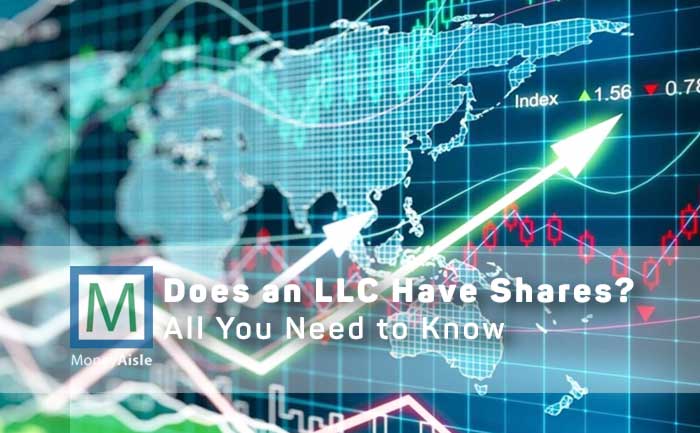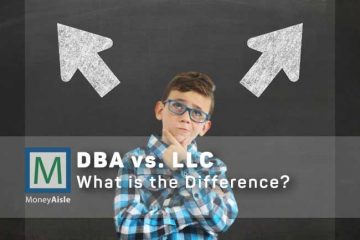Does an LLC have shares that can be bought or sold in the open market? The simple answer is no. Unlike S or C corporations, a limited liability company or LLC doesn’t have shares or stock. Rather, the LLC ownership is expressed by the percentage called membership units, membership interest, or units of interest.
Before we move on to why an LLC does not have shares and the difference between corporation shares and LLC membership units, you need to know what is stock. Many people use stocks and shares interchangeably. However, there is a slight difference which is explained as follows:
What is Stock?
Ownership in a corporation is broadly termed as stock. By purchasing a company’s stock, an investor buys a percentage of ownership in that corporation. In return for this ownership, stockholders have a claim on part of the company’s earnings and assets.
You May Also Like to Read: Can an LLC Issue Stock?
What are Shares?
Shares are individual units of equity or ownership in a corporation. In other words, a share is an individual unit of stock. Shares give information about the investment size of an individual in a corporation.
If person A and person B both own the stock of the same company C, their ownership and investment size may or may not be the same. Person A has 30 shares while person B has 1000 shares.
So, though both are the stockholders of Company C, their investment size of ownership is different which is expressed in shares.
Shares represent a person’s stake in the company and can be used as collateral for loans or investments. These shares can be bought and sold in the open market or stock exchanges.
To raise capital, companies structured as corporation issue equity shares to investors through the stock exchange. This capital is used to grow and operate the firm. Depending on specialized circumstances, companies issue 2 types of shares to investors.
Common shares
The investment is returned through price appreciation and dividends. Common shares enable voting rights to investors giving shareholders more control over the business.
Preferred shares
Preferred shares do not offer voting rights in the corporation and have less market appreciation. Investors with preferred shares get regular dividends (quarterly or annual) but do not get price appreciation. However, you can redeem your investment at an attractive price by selling these shares.
Though common stock gives more control over the business, preferred stock is less risky than common stock. Upon bankruptcy or when the company is forced to repay its lenders, preferred shareholders have priority in repayment over common shareholders.
LLC Membership Unit
LLC or limited liability company is a special business classification by the IRS for tax purposes. It is designed to be a privately owned entity that is operated by its members.
Here you can learn more about LLC ownership structure and how it works.
Since an LLC is structured as a privately owned entity, it cannot go public. Therefore, an LLC can not issue shares that can be bought and sold on the open market as corporations do.
However, as a publicly traded company, an LLC can sell units of interest (membership units) on the stock exchange. See how it is done in our article: Can an LLC Go Public? Publicly Traded LLCs Explained.
So, we can simply say that LLC does not have shares or stock. Rather than shareholders, LLC owners are called members who make an equity investment into an LLC. The equity investment can be beyond capital contributions, such as a specific service or role in running the company.
The percentage of ownership in an LLC is called an LLC membership unit or membership interest. Unlike a corporation that has a fixed number of shares, an LLC can allocate ownership in any way it sees fit.
The members decide among themselves regarding the percentage ownership, roles of each member, capital contribution, and profit allocation. The final decision regarding such matters is written in the LLC operating agreement which is considered as LLC bylaws.
Since the members decide everything among themselves, they may establish different classes of ownership to shape profit allocation or voting rights. So, this is somewhat similar to corporation shares (common vs preferred shares).
However, corporation shares are bought and sold in the open market while LLC membership units cannot be transferred to a third party as easily.
So if a non-member wants to purchase the financial interest of an existing LLC member, it must be allowed in the LLC’s operating agreement. Moreover, all LLC members must agree to the purchase.
Alternative to Issuing Shares in a Company
State laws do not prohibit LLCs from the issuance of bonds to non-members or LLC employees. However, bonds are closer in nature than stock dividends and may lack some benefits associated with shares such as voting rights.
LLCs can raise funds by issuing bonds that incorporate investment as well as potential returns from their success. However, bonds are closer to a debt instrument which is essentially a loan and not ownership.
Investors having LLC bonds incorporate their investment for the LLC’s growth and gain returns from the LLC profits. Learn more about LLC Bonds in this article.
Conclusion:
Shares can be a helpful tool for corporation owners who want to sell their stake in the company down the road to raise capital by selling them to investors. However, an LLC does not have shares and cannot issue shares as this business structure is different from corporations.
Unlike a corporation, an LLC has the flexibility to decide regarding ownership interest and percentage ownership. But, selling LLC ownership interest or transferring the asset is more difficult than selling shares of a corporation.
We hope this post has given you clarity about does an LLC has shares or not. If you’re planning to start an LLC for your business, follow our complete DIY guide or hire ZenBusiness to start an LLC for $0.

Aisha Noreen is an owner of a small business with more than 9 years of experience in the marketing industry. With the wisdom of an old soul, she always seeks innovation and mind-blowing ROI techniques. Her unique approach helped many small businesses thrive and she can surprise you in many ways as well. Believe it or not, her energy, passion, and creativity are contagious enough to transform your business and take it to another level.








